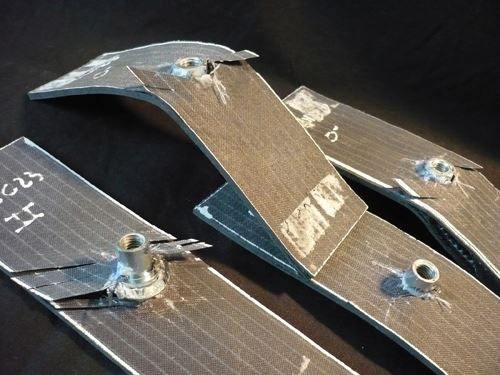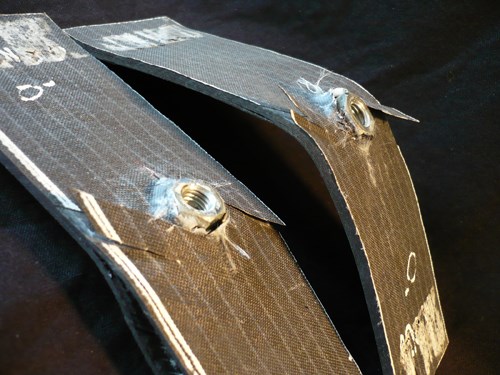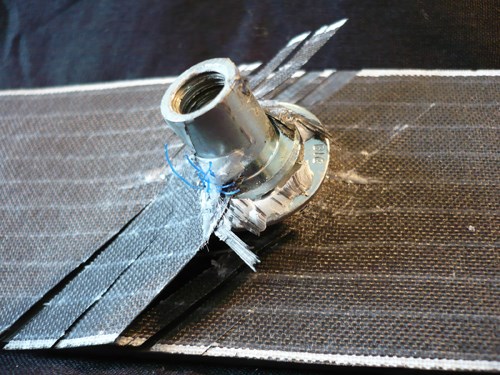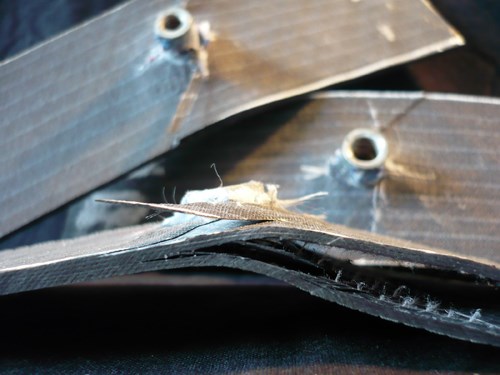BigHead Bonding Fasteners wins funding for autocomposites work
UK-based bigHead Bonding Fasteners has won funding with Cranfield University to expand its capabilities for automotive composites applications.
BigHead Bonding Fasteners (Verwood, UK) reports that it has been awarded Knowledge Transfer Partnership (KTP) funding with Cranfield University that will strengthen and expand its capabilities for fastening solutions related to the emerging demand in high-volume manufacture of lightweight composite components for the automotive industry.
The Innovate-UK part-funded government scheme is a three-way partnership that includes the appointment of a high-quality engineering graduate to implement project work as a KTP Associate within GigHead, with close support from Cranfield’s Composites Centre. The Centre specializes in researching and teaching polymer composite manufacturing and hybrid composite-metallic joining techniques. The Centre is a core partner in the strategic EPSRC Centre for Innovative Manufacturing in Composites (CIMComp) and the AMSCI funded Lightweighting Excellence (LX) programme.
BigHead are interested to hear from potential undergraduate and post-graduate candidates in mechanical engineering, materials science or design engineering related subjects looking for challenging career opportunities in this exciting and emerging area of industry.
With significant investment by automotive OEMs and Tiers for the adoption of lightweight materials at the high-end sector of the industry, and with the real potential to extend ‘lightweighting’ beyond luxury and supercars towards mass-market vehicle volumes, the need for rapid and efficient fastener integration is apparent.
BigHead already works closely with many major automotive manufacturers and their suppliers, and has developed new assembly techniques to precision-fix bigHeads to carbon fiber-reinforced plastic (CFRP) panels using specialist dry adhesives that have the potential to be scaled from prototyping and small-scale production to fully automated, volume production.
The accompanying photographs show how BigHead fasteners embedded into carbon fibre panels were able to withstand loading to the point at which the strength of the laminate became the limiting factor – details of this testing are included in bigHead’s report, "Joint Design in Carbon Fibre Automotive Panels," which can be downloaded at www.bighead.co.uk/the-techub/.
Matthew Stevens, BigHead’s managing director, is looking forward to the opportunities the KTP will bring. He explains, “As vehicle lightweighting continues to redefine the composites landscape, bigHead’s vision is to lead the industry by developing integrated fastening solutions in close cooperation with our customers through a collaborative ‘engineer-to-engineer’ process. With Cranfield’s significant expertise in composites/ joining and its strong network of contacts in industry and research we see the KTP delivering significant results for our company.”
The KTP will provide bigHead and Cranfield with practical and efficient solutions, supported by a strong applied knowledge. This will assist automotive manufacturers looking to maximize production throughput when integrating fastening components into their composite panels and components, especially carbon composite materials. It will also aim to provide the industry with standardized solutions, improved guidelines and test procedures related to this area.
Related Content
-
The potential for thermoplastic composite nacelles
Collins Aerospace draws on global team, decades of experience to demonstrate large, curved AFP and welded structures for the next generation of aircraft.
-
Plant tour: Albany Engineered Composites, Rochester, N.H., U.S.
Efficient, high-quality, well-controlled composites manufacturing at volume is the mantra for this 3D weaving specialist.
-
Bio-based acrylonitrile for carbon fiber manufacture
The quest for a sustainable source of acrylonitrile for carbon fiber manufacture has made the leap from the lab to the market.




















